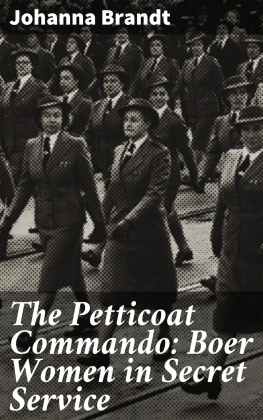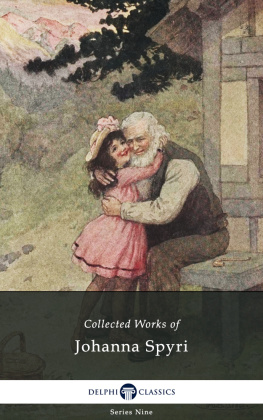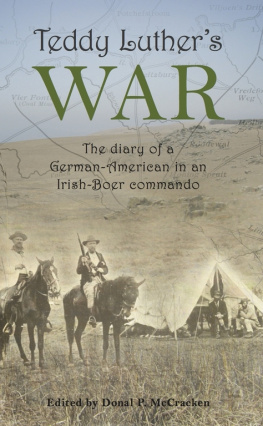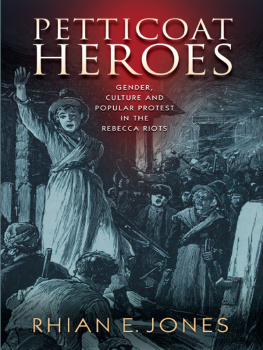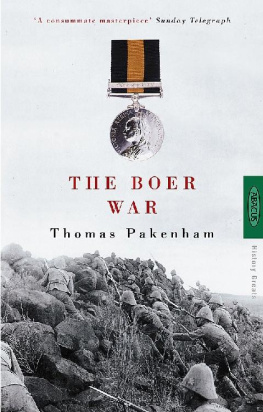HANSIE'S MOTHER
AS A PEACE-OFFERING
FOR HAVING BROUGHT HER INTO PUBLICITY
IN DIRECT OPPOSITION
TO HER WISHES
FOREWORD
In introducing the English version of this book I venture to bespeak a welcome for it, not only for the light which it throws on some little-known incidents of the South African war, but also because of the keen personal interest of the events recorded. It is more than a history. It is a dramatic picture of the hopes and fears, the devotion and bitterness with which some patriotic women in Pretoria watched and, as far as they could, took part in the war which was slowly drawing to its conclusion on the veld outside.
I do not associate myself with the opinions expressed by the writer as to the causes of the war or the methods adopted to bring it to an end, or as to the policy which led to the Concentration Camps, and the causes of the terrible mortality which prevailed during the first months of their existence. On these matters many readers will hold different opinions from the writer, or will prefer to let judgment be in suspense and to look to the historian of the future for a final verdict. We are still too near the events to be impartial. But this book does not challenge or invite controversy. Fortunately for South Africa, most of us on both sides can now discuss the events of the war without bitterness and understand and respect the feelings of those who were most sharply divided by these events from ourselves.
The greater part of the narrative comes from a diary kept during the war with unusual fullness and vividness. The difficulty experienced by the writer of the diary in communicating to friends outside Pretoria information about what was passing inside, and in unburdening herself of the feelings roused in her by the events of the war, made the diary more than usually intimate. To understand fully many of the narratives which have been transferred from it to this book, it must be remembered that one is reading, not something written from memory years after the event, but rather the record of a conversation at the time, in which the diarist is describing the events as if to a friend who shares to the full all her own feelings and to whom she can speak without reserve.
Much has happened in the ten years which have passed since the end of the war. The country which was distracted by the conflicting ideals and interests of its different Governments and peoples has become the Union of South Africa. It is now one State. It remains that it should call forth a spirit of patriotism and nationality which will unite and not divide its people.
Patrick Duncan.
Johannesburg, 1912.
INTRODUCTION
If, by inspiring feelings of patriotism in the hearts of some of my readers, especially those members of the rising generation to whom this story of adventure may appeal, I succeed in raising the standard of national life, this book will have achieved the purpose for which it was written, and I shall feel more than compensated for having set aside the reluctance with which I faced the thought of the publicity when first I began the work.
I have tried to give the public some idea of what was done by Boer women, during the great Anglo-Boer war, to keep their men in the field and to support them in what proved to be a hopeless struggle for independence and liberty.
As far as I was able I have also described the perils and hardships connected with the Secret Service of the Boers and the heroism and resource displayed by the men.
Although it is with the knowledge and consent of the Boer leaders that I give publicity to what is known to me of the methods employed in the Secret Service of the Boers, I do not wish to convey the impression that these events of the war at any time bore an official character.
It is a purely personal narrative and has only been written at the repeated request, during the last ten years, of the many friends associated with the experiences of the diarist and of the principal characters appearing in this book.
In order to preserve the historical value of the book no fictitious names have been employed.
There are, as far as we know, very few records of this nature in existence, owing to the dangers connected with keeping a diary under martial law, and it seemed a pity, therefore, to withhold from the public materials which may be of use to those who are interested in studying or writing the history of those critical years.
I cannot vouch for the truth of every war rumour related here, nor for the accuracy of the information which I have obtained from other people, but the experiences of the diarist, as they were recorded from day to day, are correct in every detail.
My Dutch edition of this book, Die Kappie Kommando, is now appearing in the Dutch South African bi-monthly journal, Die Brandwag, and will, when completed, be published in book form in Holland.
In conclusion, I should like to take this opportunity of expressing my thanks to the Honourable Sir Richard Solomon, G.C.M.G., etc., for the help and assistance which he has so kindly given me in connection with the publication of my book.
The Writer.
Johannesburg, 1912.
CONTENTS
| PAGE |
| vii |
| ix |
| CHAPTER |
| I. | 1 |
| II. | 15 |
| III. | 24 |
| IV. | 32 |
| V. | 42 |
| VI. | 46 |
| VII. | 56 |
| VIII. | 64 |
| IX. | 72 |
| X. | 82 |
| XI. | 92 |
| XII. | 106 |
| XIII. | 124 |
| XIV. | 135 |
| XV. | 146 |
| XVI. | 153 |
| XVII. | 157 |
| XVIII. | 166 |
| XIX. | 179 |
| XX. | 187 |
| XXI. | 194 |
| XXII. | 204 |
| XXIII. | 213 |
| XXIV. | 222 |
| XXV. | 229 |
| XXVI. | 234 |
| XXVII. | 240 |
| XXVIII. | 252 |
| XXIX. | 262 |
| XXX. | 272 |
| XXXI. | 279 |
| XXXII. | 283 |
| XXXIII. | 291 |
| XXXIV. | 301 |
| XXXV. | 312 |
| XXXVI. | 316 |
| XXXVII. | 324 |
| XXXVIII. | 333 |
| XXXIX. | 343 |
| XL. | 356 |
| 375 |
LIST OF ILLUSTRATIONS
| Frontispiece |
| FACING PAGE |
| 4 |
| 30 |
| 70 |
| 83 |
| 136 |

